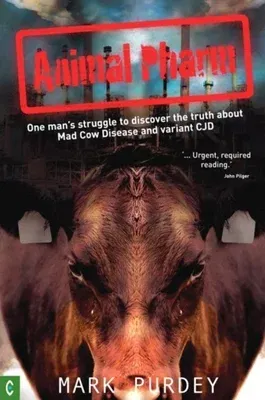Mark Purdey's life changed one day in 1984, when a Ministry of
Agriculture inspector told him he must administer a toxic
organophosphate pesticide to his dairy herd. Passionately committed to
organic farming and convinced of the harmful effects of chemicals in the
environment, he refused to comply. "It was as if my whole life became
focused," he explained later. Before they had a chance to prosecute,
Purdey took the Ministry to court and won his case. Those experiences
led him to challenge the orthodox line on the origins of Mad Cow Disease
and its human counterpart, variant CJD. Could the insecticide used in
the official program have precipitated the spread of the disease?
Purdey's quest to discover the truth was hampered at every turn by
government bureaucracies and self-serving scientific cliques who sought
to smear and marginalize him. Dogged by dirty tricks and forced to work
alone as something of a scientific sleuth, he struggled to reveal hidden
interests and dangerous secrets. His supporters included many members of
the public, as well as Prince Charles, as well as the poet Ted Hughes,
who wrote to him expressing "a million congratulations."
Increasingly sceptical of the official narrative, Purdey was certain
that toxic environmental factors would provide answers, and so embarked
on a self-funded worldwide odyssey to investigate. Animal Pharm
follows him on these eco-detective trails to locations as diverse as
Iceland, Sardinia, Colorado, and Australia. Purdey uncovers
contamination from industry, munitions, pesticides, nuclear experiments,
and natural geology, linking these with the emergence of a range of
neurodegenerative diseases. His research is at once compelling and
disturbing, helping to create a paradigm shift in our understanding of
the relationship of pollutants to disease and health.

